
views
- Get a full 8 hours of sleep every night, and eat regular meals daily. Incorporate protein-rich and spicy foods into your diet to speed up your metabolism.
- Create a workout schedule and routine. Add cardio (like running or cycling) to your routine, as well as strength training (for example, lifting weights).
- Manage your stress levels to keep your hormones in check and prevent your metabolism from slowing. Meditate, do yoga, or practice deep breathing to relax.
How to Reset Your Metabolism

Get a full night's sleep each night. The recommended amount of sleep is typically 8 hours—which means getting enough sleep every night is one of the most valuable things you can do to restart your metabolism. Try to keep your sleep schedule as consistent as possible; it’s okay if you have a late night over the weekend sometimes, but ensure that no matter what, you make a plan to get 8 hours every night. For example, if you need to get up for work at 6 a.m., be in bed ready to fall asleep by 10 p.m. the night before. If you stay up late over the weekend, spend the next morning sleeping in to make up for it. Lack of sleep acts as a stressor and disrupts the balance of hormones in your body, causing your metabolism to slow down and limiting fat loss—which is why a full night of sleep is so important.
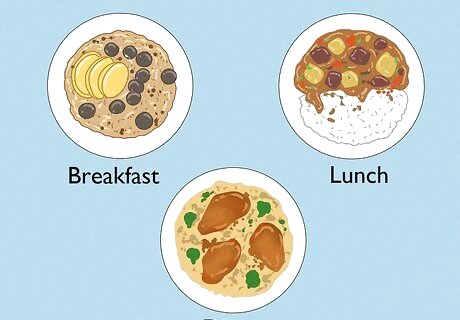
Eat regular, nutritious meals throughout the day. If your goal is to lose weight, this might be surprising—but simply eating food is a big part of jumpstarting your metabolism. Your body needs energy to function no matter what, and food provides that energy. Thus, starving yourself actually causes your body’s metabolism to slow down, whereas eating 3 healthy meals a day at breakfast, lunch, and dinner speeds it up. Breakfast is a particularly important meal, so do your best to eat it daily—especially if you plan to work out in the morning! Eating before exercise may help jumpstart your metabolism. Try intermittent fasting as well—which basically means eating during a set period of the day. Fasting may help improve your sleep and metabolism. For example, you might plan all of your meals within a 10-hour period (like 9 am, 1 pm, and 7 pm) and fast for the other 14 hours.
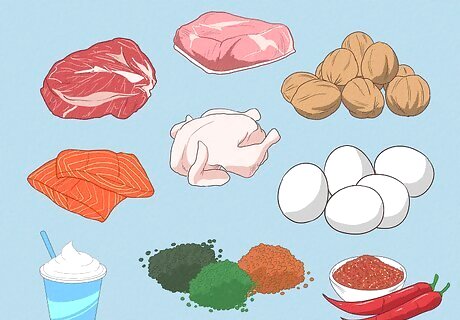
Include high-protein foods in your diet. A protein-rich diet helps you build (and maintain) muscle—and having a higher muscle mass tends to make your metabolism more active as a result. Plus, protein is more challenging for your body to digest, which means it takes more energy to do, thus burning more calories and forcing your metabolism to speed up. Try protein-rich foods like: Eggs Nuts Meat and fish Yogurt Lentils Incorporate spicy foods into your diet too! Some studies show that foods with capsaicin (a substance common in spicy peppers) may trigger a small boost in your metabolism.

Do workouts with plenty of cardio. Aerobic cardiovascular exercise (or cardio, for short) has a lot of health benefits—and boosting your metabolism is just one of them. Cardio can also improve your heart health and reduce your risk of heart disease or diabetes. Establish a workout routine with cardio exercises including activities like: Running, jogging, or walking Cycling Swimming Dancing Aerobics Sports like soccer, basketball, and tennis
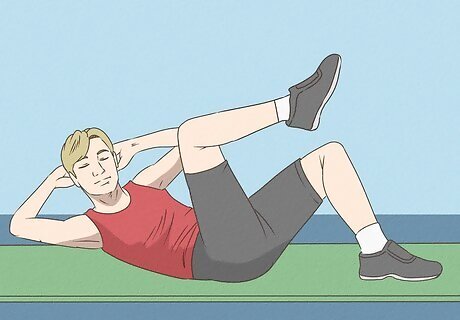
Work some strength training into your workouts. Strength training builds muscle mass—which, as mentioned above, also raises your body’s metabolic rate. Incorporate strength training into your regular workout schedule; a solid workout typically incorporates multiple different kinds of exercise, including cardio and strength training. Strength training activities include: Lifting weights Using resistance bands Climbing stairs Push-ups, sit-ups, and squats
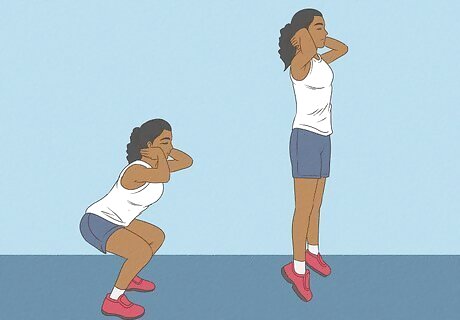
Try a high-intensity interval training (HIIT) workout. HIIT workouts are simply routines that involve exercising in short but extremely high-intensity bursts. Some studies show that HIIT workouts can increase your HGH (human growth hormone), which in turn stimulates your metabolism even faster than a regular workout. Essentially, even very short bursts of exercise can be super helpful for your metabolism! For example, you might try a 5-minute cardio HIIT workout with jump squats, high knee running, and jumping jack planks. HIIT workouts are also super helpful if you’re a busy person because they don’t take up a lot of time.

Find ways to move around even when you’re not exercising. You don’t need to exercise to burn calories! Even simple activities like cleaning your living room, gardening, or working at a standing desk for part of the day can keep your body moving and boost your metabolism. Look for easy, convenient ways to move around (and avoid sitting for long periods of time) throughout the day. It’s okay if you can’t be active for the entire day. Even a quick 10-minute walk every couple of hours can really help!

Drink caffeinated coffee or tea in moderation. Caffeine has been shown to increase metabolism—and some studies have even linked it to fat loss. That doesn’t mean you should overload with caffeine every day, but a cup of coffee to get you started in the morning may actually be a very good thing! Alternatively, if coffee makes you jittery, fix a cup of green tea instead.

Stay hydrated throughout the day. Not only does water help you stay hydrated—it also boosts your metabolism. One study found that drinking 16.9 oz (just over 2 cups) of water can even raise your metabolic rate by 30% for up to 40 minutes. Therefore, drinking water throughout the day will likely go a long way to resetting your body’s metabolism! Typically, men are encouraged to drink 15.5 cups (3.7 liters) of water each day, while it’s recommended that women drink 11.5 (2.7 liters) of water daily.
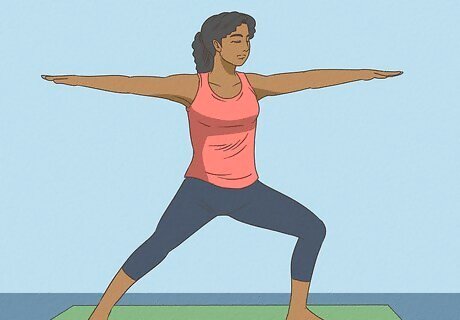
Practice relaxation techniques to reduce stress. Chronic stress tends to cause your body to hold onto more weight because it often triggers an increase in appetite and a decrease in your body’s metabolic rate. As mentioned above, sleep is a key part of reducing stress—but there are other ways to do it, too. Practice activities like yoga and try mindful meditation to lower your overall stress levels each day. Other stress management activities include: Deep breathing Tai chi Exercise Practicing self-care
What is metabolism?

Your metabolism is the rate at which your body burns calories. When you eat food, your body breaks down all the protein, fats, and carbohydrates, converting them into energy, tissue, and fat in an internal process called “metabolizing.” Whenever you do something requiring energy, your metabolism is activated, and the speed at which your body quietly burns calories to expend energy is called your metabolic rate. In short, metabolism is a bit like a power plant for your body. When your body’s metabolism is relatively slow, that means it takes longer to burn through all the calories you eat and drink. Thus, resetting your metabolism causes it to speed up and process calories faster—which also makes it easier to lose weight if that’s your goal!
Can your metabolic rate change naturally?

Metabolism tends to change over time based on several factors. Your metabolic rate naturally slows as you age because your body’s muscles often decrease in volume, which leads to an increase in body fat. Thankfully, it’s very possible to change your metabolism for the better as well—so even if your metabolism has slowed down, it can still be jump started with the steps above, including rest, exercise, and nutrition. Factors that affect metabolism include: Body type. Muscle tissue burns calories faster than fat cells, so having a more muscular body composition often gives you a faster metabolic rate than you would if your body had more fat. Sex. Males tend to have a higher muscle mass than females, which means they also typically have a higher metabolic rate. Hormones. Hormones like leptin (a protein hormone) and ghrelin (a hunger hormone) directly affect metabolism and weight gain or loss. If your body’s levels are imbalanced, it may change your metabolic rate. Physical activity. More frequent physical activity often leads to a higher metabolic rate as well. Remember, not all of these factors are within your control, so don’t get too frustrated with yourself as your body naturally changes. Focus on living your best and healthiest life, and your metabolism will adjust for the better.


















Comments
0 comment